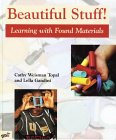About Beth Bruno...
Beth is a freelance writer and editor with more than 20 years of experience in mental health and education. She graduated from the University of California, Berkeley, with a B.A. in Psychology in 1966. She continued her education at Harvard University (Ed.M. in Educaton, 1967) and Yeshiva University (M.A. in Clinical Psychology, 1976). Beth has served as Chair of the Psychology Department for the Special Children's Center in Ithaca, New York, and has worked as Adjunct Instructor at Tompkins-Cortland Community College.
Beth has recently published a book called Wild Tulips, full of colorful tales about teaching and raising children. (available at Amazon.com)
Beth encourages questions from young people, adults, educators and professionals. She will do her best to answer each question personally and in a timely manner. She can be reached via email at bethbruno@teachers.net.
Best Sellers

Wild Tulips
by Beth Bruno
$12.95 from Amazon.com
More information
|
 Ask the School Psychologist...
Ask the School Psychologist...
by Beth Bruno, Ed.M., M.A.
Tips for Motivating Young Children
QUESTION: I have two preschoolers with boundless curiosity and energy. Everywhere we go, it seems, adults want them to be quiet and sit still. Naturally I don't want them to bother the people around them, but I don't want to stifle their enthusiasm either. What do you suggest? What are some of the principles you suggest parents follow for motivating and educating preschoolers?
ANSWER: Children need to learn how to handle a variety of social circumstances. They can readily adapt to adult gatherings, as long as you prepare them and don't ask them to suppress noise and activity for hours at a time. Bring quiet activities with you (books, paper and crayons, a light snack) that will occupy them while they wait. Be prepared to take an "action" break when they get restless. A short walk outside or down the hall in a space where they can run off steam for a few minutes can buy you another period of cooperation. Keep their developmental capabilities in mind. If the event is strictly for adults and requires silence and stillness from your children, it might be better to arrange supervision for them elsewhere, rather than set yourselves up for a frustrating, unmanageable situation.
I offer the following tips for motivating and educating preschoolers. These tips are not presented in any particular order, nor are they meant to be all-inclusive.
- Listen to children and keep an open mind. When a child is having trouble at home or at preschool, the causes can be tough to pinpoint. Generate hypotheses and try interventions based on those hypotheses. Among the possibilities to consider are: nutritional status, vision, hearing, sleep, social relationships, dreams, family stresses, environmental irritants, allergies, sickness, maturation, and cognitive abilities. Even when interventions are effective and the trouble subsides, its causes might remain a mystery.
- Play with children as often as you can. Children learn and express themselves most naturally through play. Even the most verbal children will share their thoughts and feelings most directly and richly through play. Telling children how to do things and then watching them is not enough. Enter their world; they will welcome you eagerly.
- Model the behaviors you want children to imitate. If you live by your beliefs and act on them, children may follow. But say one thing and do another and children will soon ignore you, because they can sense hypocrisy a mile away.
- Children find joy in mastery. When you help a child succeed at even the smallest task -- turning a somersault or tying a shoe -- you have ignited that child's motivation to take on the next challenge. Think about how rotten it feels to say, "I can't" in contrast to how exhilarating it feels to say, "I can!" The tremendous power of those feelings originates in childhood.
- Read with children every day -- poetry and prose of all kinds -- to stimulate imagination, memory, curiosity, language and concept development, acquisition of knowledge and interest in the written word. The ability to understand and manipulate written symbols is vital for academic success.
- Let children lead you. We learn as much from children as they learn from us. In order for each child to express his or her unique talents, nurturing adults need to provide for their health and safety in stimulating environments and then get out of the way. Too many children are indoctrinated by adults to think and act within such tight constraints that they never discover their unique gifts. The child in your care may be the next Einstein or the next Mozart or the next … who knows what? Encourage children to tolerate today's ambiguities and to believe in the possibilities of tomorrow.
Beth Bruno bbruno@snet.net
Welcome to Insights, the Luckiest Spot on the Internet
Click here for more articles by Beth Bruno.
Best Sellers

Beautiful Stuff : Learning With Found Materials
by Cathy Weisman Topal
$18.92 from Amazon.com
More information

Young Investigators-The Project Approach in the Early Years (Early Childhood Education)
by Judy Harris Helm & Lilian Katz
$18.95 from Amazon.com
More information
|
|

